I read a lot of books this year--231 to be exact. Not all of them were hits. In fact,
most of them probably weren't hits. I can like a book well enough, but that doesn't mean it's memorable or something that I would necessarily recommend. But some...some I absolutely
adore, and I wanted to just point those out in one place! Note: These are not all books that were
published in 2017, but rather ones that I
read in 2017. Regardless, they were still excellent. Additionally, they weren't all necessarily 5-star reads but rather 4- and 5-star ones that I think have different varieties of merit going for them.
 Girls in the Moon
Girls in the Moon is the story of a family of women, a mother and two daughters, as the daughters reunite over a summer in New York City and their mother's story travels back through the past. It's a love note to music and to poetry, and of families coming apart and coming together. It is nostalgic and optimistic and just overall absolutely lovely. The relationships between all of the characters rang true and the diverging story lines--Phoebe's moving forward in time while her mother Meg's moves backwards--lent the story a little something that helped to build up the atmosphere. It just had a wonderful feel to it, plus that cover design is absolutely gorgeous, don't you think? Genres: contemporary, young adult/new adult, coming of age
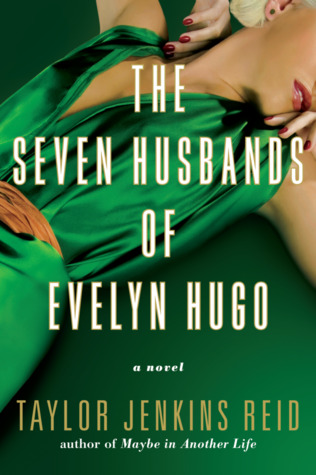 The Seven Husbands of Evelyn Hugo
The Seven Husbands of Evelyn Hugo was possibly the best book I read this year. While part of it is set in current-day New York City, most of the book is of a more historical bend, taking place over the span of the titular Evelyn Hugo's time as a starlet and then more matured actress in old-time Hollywood. It touches on so many important themes and resonated on so many levels. The writing was poignant, the characters real and necessary all in their own ways. Divided into sections based on each of Evelyn's seven marriages, the book dives into the question of who the great love of Evelyn's life was, the reasons people can and cannot be together, how people change, and how you can pick your family after all. Beautiful. This didn't win a Goodreads Choice Award and it's a crying shame. Genres: historical fiction, contemporary fiction

A book that I liked quite a bit more than I expected this year was
The Selkie Bride.
It's romance and paranormal fantasy, yes, but in a setting and narrative style that feels like a Gothic romance rather than a contemporary paranormal or shapeshifter romance. While I didn't rate this as high as the other Gothic romance I read this year,
The Shivering Sands, I feel like it's different enough from most Gothics to rate mentioning on this list. Like most Gothic romances I've encountered, the actual romance isn't super prevalent. It's there, certainly, but the focus is much more on simmering atmosphere and the lurking threat in a town that is very probably cursed. It didn't feel like anything else I read this year, which I really liked. Genres: romance, Gothic, historical fiction, paranormal fantasy
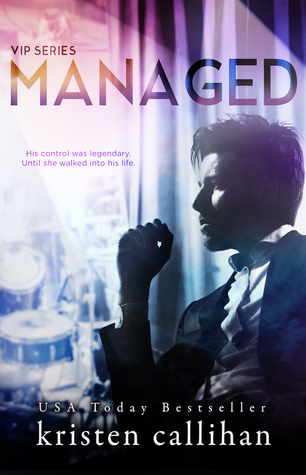 Managed
Managed has to be my pick for a straight-up romance this year. It's the second in a series but you could definitely read it on its own. Chemistry sizzles between the manager of a band and the band's social media/image consultant, who get friendly on a flight before they know who each other are and are never really able to disengage after that. The build and the burn are slow and sometimes excruciating, but in a way that's just so tantalizing you can't help but keep reading. The first book in the series
, Idol, is also good, but the romance plays out much faster than in
Managed, and I think the slower build was a big strength in this volume. I can't wait to see how the rest of this series plays out, because the characters are all so great and I want to see them all paired off! Genres: contemporary romance, drama
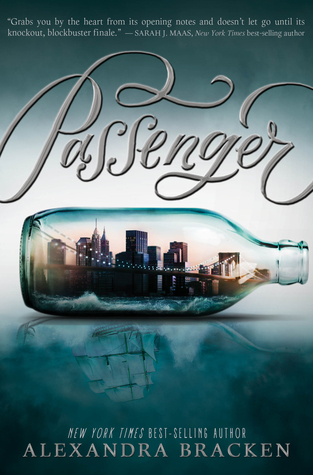
If
Girls in the Moon was my favorite contemporary young adult novel for the year,
Passenger was no doubt my favorite young adult fantasy novel. Spanning not only places but times, the story of a young performer swept away on a time-traveling adventure linked to a tangle of family ties has the magic that I first discovered in Bracken's debut novel,
Brightly Woven. While I didn't fact-check my way through the book, the different times and places rang with their own sense of authenticity and atmosphere and featured as characters in their own right. Also, this has an interracial romance, which is something that's pretty rare in young adult fiction and worthy of note in and of itself. It abides by an internal logic and the characters acted as reasonable people when their hidden motives came out into the open. The sequel was also quite good, but I think
Passenger was the stronger of the two. Genres: young adult, fantasy, historical fiction, time travel
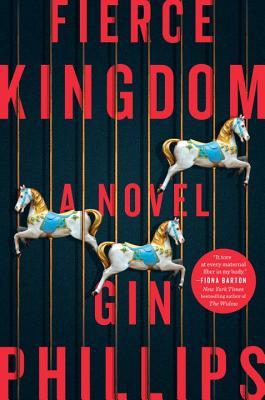
I'm somewhat surprising myself with my thriller selection here, which has to be
Fierce Kingdom. I honestly didn't think I was going to like this that much, because the main character spends time toting around her toddler son, and I really tend to dislike books that deal heavily with children. However, what makes this book so strong is its setup. If you read at a decent pace, you can probably read this book in the same span of time that it takes place, which means that you can feel the tension on a completely different scale from most books. It's kind of like the
24 of books--though instead of the characters trying to stop terrorists and save the country (or something along those lines), they are simply trying to survive in the face of a much smaller but no more visceral tragedy: a mass shooting at the city zoo. Genres: suspense, thriller, contemporary fiction
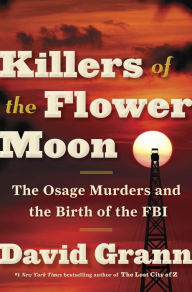
My favorite history focus for the year was no doubt
Killers of the Flower Moon, a riveting nonfiction account of the Osage Native Americans and the killer(s) that stalked them, carrying out a series of murders in an attempt to make a grab for the oil shares that the Osage controlled. Additionally, Grann covers the bumbling attempts of the early FBI to solve to the murders. Grann himself puts together the facts and follows the strings further than the FBI ever seems to have done, eventually laying out a picture that is truly horrifying in its scope. Greed is a character here just as much as the real people populating the page, and Grann does a wonderful job laying out the narrative, building the case, and doing it all in a fashion that is eminently readable. Genres: nonfiction, history, mystery, true crime
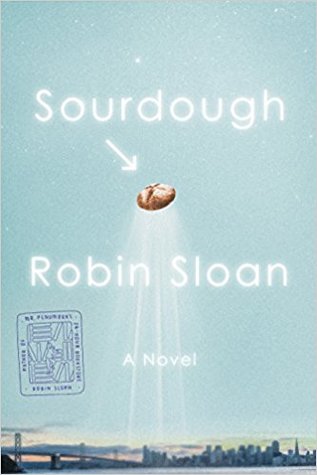 Sourdough
Sourdough gets my vote for fantasy of the year. I had a lot of tough decisions here; I read several fantasy books I absolutely loved this year. Ultimately, though, I'm going with
Sourdough because, while the fantasy aspect isn't as pronounced as in some others I adored (
Uprooted, The City of Brass) it hit on another note that I really wanted to include: food. This is a magical realism story about how food can liberate people, and how easy it is to get in over one's head. With the same quirkiness that Sloan brought to
Mr. Penumbra's 24-Hour Bookstore,
Sourdough uses humor and technology and a sense of place to build up a story that's all heart. Be prepared to want to devour copious amounts of bread as you read this. Genres: fantasy, magical realism, urban fantasy

I wanted to include a book that hit on important current events in this list, and I was torn between
Missoula, my ultimate selection, and
Exit West.
Exit West deals with the refugee crisis in a sort of magical-realism way. But ultimately, it was
Missoula that resonated with me more, especially in the wake of the results of the 2016 election (you know, how a man who brags about sexually assaulting women can somehow become the President of the United States) and the revelations that have come out at pretty much every level of society about sexual assault and rape this year. Of course, this information probably doesn't come as a surprise to many women. The slut-shaming, victim blaming, and utter disregard for justice displayed in
Missoula are rampant in society, and Krakauer's work is well-researched and well-written. This should be mandatory reading for all college students as well as for anyone who says that rape isn't a problem, that it's all women crying wolf, etc. Genres: nonfiction, current events, true crime
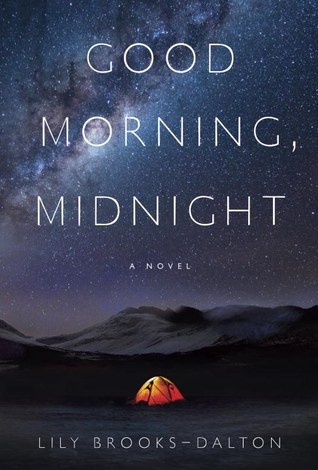
Finally, I wanted to include a post-apocalyptic book for the year. I was torn between
Good Morning, Midnight and
The Handmaid's Tale. I'm ultimately picking
Good Morning, Midnight for this category, though, because while I think
The Handmaid's Tale is vitally important, it's gotten a
lot of press this year--understandably so, given its simmering relevance as well as its adaptation into a series by Hulu--and I wanted to end my list on a more positive note. Much like
Station Eleven,
Good Morning, Midnight has a surprisingly optimistic look at the end of the world and what comes after, and is a story of human resilience and hope rather than one of grit and doom. The imagery is wonderful and the two stories contained here, slowly coming closer and closer together, have a duality that resonates more together than on their own. The parts are greater than the whole, and while the end wasn't a huge surprise, it was beautiful and poignant and the book stuck with me long after reading it.
 Girls in the Moon is the story of a family of women, a mother and two daughters, as the daughters reunite over a summer in New York City and their mother's story travels back through the past. It's a love note to music and to poetry, and of families coming apart and coming together. It is nostalgic and optimistic and just overall absolutely lovely. The relationships between all of the characters rang true and the diverging story lines--Phoebe's moving forward in time while her mother Meg's moves backwards--lent the story a little something that helped to build up the atmosphere. It just had a wonderful feel to it, plus that cover design is absolutely gorgeous, don't you think? Genres: contemporary, young adult/new adult, coming of age
Girls in the Moon is the story of a family of women, a mother and two daughters, as the daughters reunite over a summer in New York City and their mother's story travels back through the past. It's a love note to music and to poetry, and of families coming apart and coming together. It is nostalgic and optimistic and just overall absolutely lovely. The relationships between all of the characters rang true and the diverging story lines--Phoebe's moving forward in time while her mother Meg's moves backwards--lent the story a little something that helped to build up the atmosphere. It just had a wonderful feel to it, plus that cover design is absolutely gorgeous, don't you think? Genres: contemporary, young adult/new adult, coming of age The Seven Husbands of Evelyn Hugo was possibly the best book I read this year. While part of it is set in current-day New York City, most of the book is of a more historical bend, taking place over the span of the titular Evelyn Hugo's time as a starlet and then more matured actress in old-time Hollywood. It touches on so many important themes and resonated on so many levels. The writing was poignant, the characters real and necessary all in their own ways. Divided into sections based on each of Evelyn's seven marriages, the book dives into the question of who the great love of Evelyn's life was, the reasons people can and cannot be together, how people change, and how you can pick your family after all. Beautiful. This didn't win a Goodreads Choice Award and it's a crying shame. Genres: historical fiction, contemporary fiction
The Seven Husbands of Evelyn Hugo was possibly the best book I read this year. While part of it is set in current-day New York City, most of the book is of a more historical bend, taking place over the span of the titular Evelyn Hugo's time as a starlet and then more matured actress in old-time Hollywood. It touches on so many important themes and resonated on so many levels. The writing was poignant, the characters real and necessary all in their own ways. Divided into sections based on each of Evelyn's seven marriages, the book dives into the question of who the great love of Evelyn's life was, the reasons people can and cannot be together, how people change, and how you can pick your family after all. Beautiful. This didn't win a Goodreads Choice Award and it's a crying shame. Genres: historical fiction, contemporary fiction A book that I liked quite a bit more than I expected this year was The Selkie Bride. It's romance and paranormal fantasy, yes, but in a setting and narrative style that feels like a Gothic romance rather than a contemporary paranormal or shapeshifter romance. While I didn't rate this as high as the other Gothic romance I read this year, The Shivering Sands, I feel like it's different enough from most Gothics to rate mentioning on this list. Like most Gothic romances I've encountered, the actual romance isn't super prevalent. It's there, certainly, but the focus is much more on simmering atmosphere and the lurking threat in a town that is very probably cursed. It didn't feel like anything else I read this year, which I really liked. Genres: romance, Gothic, historical fiction, paranormal fantasy
A book that I liked quite a bit more than I expected this year was The Selkie Bride. It's romance and paranormal fantasy, yes, but in a setting and narrative style that feels like a Gothic romance rather than a contemporary paranormal or shapeshifter romance. While I didn't rate this as high as the other Gothic romance I read this year, The Shivering Sands, I feel like it's different enough from most Gothics to rate mentioning on this list. Like most Gothic romances I've encountered, the actual romance isn't super prevalent. It's there, certainly, but the focus is much more on simmering atmosphere and the lurking threat in a town that is very probably cursed. It didn't feel like anything else I read this year, which I really liked. Genres: romance, Gothic, historical fiction, paranormal fantasy Managed has to be my pick for a straight-up romance this year. It's the second in a series but you could definitely read it on its own. Chemistry sizzles between the manager of a band and the band's social media/image consultant, who get friendly on a flight before they know who each other are and are never really able to disengage after that. The build and the burn are slow and sometimes excruciating, but in a way that's just so tantalizing you can't help but keep reading. The first book in the series, Idol, is also good, but the romance plays out much faster than in Managed, and I think the slower build was a big strength in this volume. I can't wait to see how the rest of this series plays out, because the characters are all so great and I want to see them all paired off! Genres: contemporary romance, drama
Managed has to be my pick for a straight-up romance this year. It's the second in a series but you could definitely read it on its own. Chemistry sizzles between the manager of a band and the band's social media/image consultant, who get friendly on a flight before they know who each other are and are never really able to disengage after that. The build and the burn are slow and sometimes excruciating, but in a way that's just so tantalizing you can't help but keep reading. The first book in the series, Idol, is also good, but the romance plays out much faster than in Managed, and I think the slower build was a big strength in this volume. I can't wait to see how the rest of this series plays out, because the characters are all so great and I want to see them all paired off! Genres: contemporary romance, drama If Girls in the Moon was my favorite contemporary young adult novel for the year, Passenger was no doubt my favorite young adult fantasy novel. Spanning not only places but times, the story of a young performer swept away on a time-traveling adventure linked to a tangle of family ties has the magic that I first discovered in Bracken's debut novel, Brightly Woven. While I didn't fact-check my way through the book, the different times and places rang with their own sense of authenticity and atmosphere and featured as characters in their own right. Also, this has an interracial romance, which is something that's pretty rare in young adult fiction and worthy of note in and of itself. It abides by an internal logic and the characters acted as reasonable people when their hidden motives came out into the open. The sequel was also quite good, but I think Passenger was the stronger of the two. Genres: young adult, fantasy, historical fiction, time travel
If Girls in the Moon was my favorite contemporary young adult novel for the year, Passenger was no doubt my favorite young adult fantasy novel. Spanning not only places but times, the story of a young performer swept away on a time-traveling adventure linked to a tangle of family ties has the magic that I first discovered in Bracken's debut novel, Brightly Woven. While I didn't fact-check my way through the book, the different times and places rang with their own sense of authenticity and atmosphere and featured as characters in their own right. Also, this has an interracial romance, which is something that's pretty rare in young adult fiction and worthy of note in and of itself. It abides by an internal logic and the characters acted as reasonable people when their hidden motives came out into the open. The sequel was also quite good, but I think Passenger was the stronger of the two. Genres: young adult, fantasy, historical fiction, time travel I'm somewhat surprising myself with my thriller selection here, which has to be Fierce Kingdom. I honestly didn't think I was going to like this that much, because the main character spends time toting around her toddler son, and I really tend to dislike books that deal heavily with children. However, what makes this book so strong is its setup. If you read at a decent pace, you can probably read this book in the same span of time that it takes place, which means that you can feel the tension on a completely different scale from most books. It's kind of like the 24 of books--though instead of the characters trying to stop terrorists and save the country (or something along those lines), they are simply trying to survive in the face of a much smaller but no more visceral tragedy: a mass shooting at the city zoo. Genres: suspense, thriller, contemporary fiction
I'm somewhat surprising myself with my thriller selection here, which has to be Fierce Kingdom. I honestly didn't think I was going to like this that much, because the main character spends time toting around her toddler son, and I really tend to dislike books that deal heavily with children. However, what makes this book so strong is its setup. If you read at a decent pace, you can probably read this book in the same span of time that it takes place, which means that you can feel the tension on a completely different scale from most books. It's kind of like the 24 of books--though instead of the characters trying to stop terrorists and save the country (or something along those lines), they are simply trying to survive in the face of a much smaller but no more visceral tragedy: a mass shooting at the city zoo. Genres: suspense, thriller, contemporary fiction My favorite history focus for the year was no doubt Killers of the Flower Moon, a riveting nonfiction account of the Osage Native Americans and the killer(s) that stalked them, carrying out a series of murders in an attempt to make a grab for the oil shares that the Osage controlled. Additionally, Grann covers the bumbling attempts of the early FBI to solve to the murders. Grann himself puts together the facts and follows the strings further than the FBI ever seems to have done, eventually laying out a picture that is truly horrifying in its scope. Greed is a character here just as much as the real people populating the page, and Grann does a wonderful job laying out the narrative, building the case, and doing it all in a fashion that is eminently readable. Genres: nonfiction, history, mystery, true crime
My favorite history focus for the year was no doubt Killers of the Flower Moon, a riveting nonfiction account of the Osage Native Americans and the killer(s) that stalked them, carrying out a series of murders in an attempt to make a grab for the oil shares that the Osage controlled. Additionally, Grann covers the bumbling attempts of the early FBI to solve to the murders. Grann himself puts together the facts and follows the strings further than the FBI ever seems to have done, eventually laying out a picture that is truly horrifying in its scope. Greed is a character here just as much as the real people populating the page, and Grann does a wonderful job laying out the narrative, building the case, and doing it all in a fashion that is eminently readable. Genres: nonfiction, history, mystery, true crime Sourdough gets my vote for fantasy of the year. I had a lot of tough decisions here; I read several fantasy books I absolutely loved this year. Ultimately, though, I'm going with Sourdough because, while the fantasy aspect isn't as pronounced as in some others I adored (Uprooted, The City of Brass) it hit on another note that I really wanted to include: food. This is a magical realism story about how food can liberate people, and how easy it is to get in over one's head. With the same quirkiness that Sloan brought to Mr. Penumbra's 24-Hour Bookstore, Sourdough uses humor and technology and a sense of place to build up a story that's all heart. Be prepared to want to devour copious amounts of bread as you read this. Genres: fantasy, magical realism, urban fantasy
Sourdough gets my vote for fantasy of the year. I had a lot of tough decisions here; I read several fantasy books I absolutely loved this year. Ultimately, though, I'm going with Sourdough because, while the fantasy aspect isn't as pronounced as in some others I adored (Uprooted, The City of Brass) it hit on another note that I really wanted to include: food. This is a magical realism story about how food can liberate people, and how easy it is to get in over one's head. With the same quirkiness that Sloan brought to Mr. Penumbra's 24-Hour Bookstore, Sourdough uses humor and technology and a sense of place to build up a story that's all heart. Be prepared to want to devour copious amounts of bread as you read this. Genres: fantasy, magical realism, urban fantasy I wanted to include a book that hit on important current events in this list, and I was torn between Missoula, my ultimate selection, and Exit West. Exit West deals with the refugee crisis in a sort of magical-realism way. But ultimately, it was Missoula that resonated with me more, especially in the wake of the results of the 2016 election (you know, how a man who brags about sexually assaulting women can somehow become the President of the United States) and the revelations that have come out at pretty much every level of society about sexual assault and rape this year. Of course, this information probably doesn't come as a surprise to many women. The slut-shaming, victim blaming, and utter disregard for justice displayed in Missoula are rampant in society, and Krakauer's work is well-researched and well-written. This should be mandatory reading for all college students as well as for anyone who says that rape isn't a problem, that it's all women crying wolf, etc. Genres: nonfiction, current events, true crime
I wanted to include a book that hit on important current events in this list, and I was torn between Missoula, my ultimate selection, and Exit West. Exit West deals with the refugee crisis in a sort of magical-realism way. But ultimately, it was Missoula that resonated with me more, especially in the wake of the results of the 2016 election (you know, how a man who brags about sexually assaulting women can somehow become the President of the United States) and the revelations that have come out at pretty much every level of society about sexual assault and rape this year. Of course, this information probably doesn't come as a surprise to many women. The slut-shaming, victim blaming, and utter disregard for justice displayed in Missoula are rampant in society, and Krakauer's work is well-researched and well-written. This should be mandatory reading for all college students as well as for anyone who says that rape isn't a problem, that it's all women crying wolf, etc. Genres: nonfiction, current events, true crime Finally, I wanted to include a post-apocalyptic book for the year. I was torn between Good Morning, Midnight and The Handmaid's Tale. I'm ultimately picking Good Morning, Midnight for this category, though, because while I think The Handmaid's Tale is vitally important, it's gotten a lot of press this year--understandably so, given its simmering relevance as well as its adaptation into a series by Hulu--and I wanted to end my list on a more positive note. Much like Station Eleven, Good Morning, Midnight has a surprisingly optimistic look at the end of the world and what comes after, and is a story of human resilience and hope rather than one of grit and doom. The imagery is wonderful and the two stories contained here, slowly coming closer and closer together, have a duality that resonates more together than on their own. The parts are greater than the whole, and while the end wasn't a huge surprise, it was beautiful and poignant and the book stuck with me long after reading it.
Finally, I wanted to include a post-apocalyptic book for the year. I was torn between Good Morning, Midnight and The Handmaid's Tale. I'm ultimately picking Good Morning, Midnight for this category, though, because while I think The Handmaid's Tale is vitally important, it's gotten a lot of press this year--understandably so, given its simmering relevance as well as its adaptation into a series by Hulu--and I wanted to end my list on a more positive note. Much like Station Eleven, Good Morning, Midnight has a surprisingly optimistic look at the end of the world and what comes after, and is a story of human resilience and hope rather than one of grit and doom. The imagery is wonderful and the two stories contained here, slowly coming closer and closer together, have a duality that resonates more together than on their own. The parts are greater than the whole, and while the end wasn't a huge surprise, it was beautiful and poignant and the book stuck with me long after reading it.
No comments:
Post a Comment